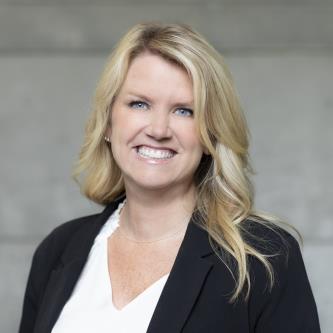Fostering a resilient organizational culture and driving sustainable growth in the face of potential AI disruption are top-of-mind goals for business leaders in 2024. For many companies, generative AI has been framed as a transformation catalyst toward these gains, with HR leaders representing the link between the C-suite and the workforce.
Amid this uncertainty, HR executives are asked to redefine productivity metrics in alignment with evolving organizational imperatives, meanwhile bridging the disconnect between legacy technologies and emergent platforms.
It’s an exciting space to fill but also one with many unknowns. How can HR move these topics from theory into practice while handling day-to-day tasks that needed attention yesterday?
In these moments, many CHROs rely on their network for tangible guidance, reaching out to friends and colleagues for honest advice. This week, HR leaders from around the country gathered in Scottsdale to connect and learn from leaders from Microsoft, Amazon and more at the i4cp 2024 Next Practices Now conference.
Culture determines economic health
Kevin Martin, chief research officer at i4cp, hit on several key themes of his firm’s recent research. He said that incremental productivity gains won’t get organizations to high-performing levels. People leaders should instead focus on cultural health and company trust.
He called culture the biggest “off-balance-sheet asset” of any company, adding that if employees don’t trust senior leaders, “there’s a big red flag.” Trust, he said, is a significant determinant of cultural health and is “robustly related to [organizations’] economic health.”

Martin predicts that trust will be tested this year more than ever, given widespread global uncertainty and the volatile U.S. election season, but there are steps HR can take to bolster it.
HR leaders, he says, should model organizational values consistently, be held accountable for employee outcomes, recognize the “how” of goal achievement, listen to workers and communicate back an understanding of their concerns, provide flexibility in the “where, when and what” of work and empower employees with decision authority and autonomy.
Learnings from Microsoft
Amy Coleman, Microsoft’s vice president of HR, provided learnings from her company’s journey with AI, which saved her department over 20,000 team hours. She related that employees can tap into their talent best when tech creates space for more meaningful work.
She also highlighted the positive impact of adaptive leaders, cultural agility, a growth mindset and a “what if” attitude that considers everyone in the organization an AI innovator.

Additionally, Coleman shared that to prepare employees for roles of the future, HR leaders should combat fears about organizational change by addressing them head-on. “Bring them out of the shadows,” she said.
While her position at one of the world’s biggest tech giants suggests AI is more accessible to her than perhaps it is for other HR leaders, she envisions that in the future, many workplaces will rely on artificial intelligence—particularly through AI-powered internal talent marketplaces.
Coleman says that employees often change jobs because external opportunities allow for growth, and marketplaces can do more to keep quality workers while helping them fulfill their career development goals.
Culture is organic
Ian Wilson, vice president of HR for Amazon Web Services, spoke to his peers about the need to protect organizational culture. He says that culture and people are “organic,” meaning they aren’t fixed and immovable but that they evolve—and a company’s culture should mirror that malleability. He advised the audience that, as practitioners, HR leaders should increase the workplace understanding of the fluid nature of culture.

He shared with the audience that at Amazon, “it’s always day one,” breeding constant opportunities for a fresh outlook. Wilson pointed to Amazon’s organizational principles, which he says have changed several times in the lifespan of this relatively young organization: “They are not rules or goals, but principles.”
If this event’s emphasis on culture seems daunting, a reminder from Rob Cross, senior vice president of research at i4cp, might serve as a balancing point. He told the audience that it’s not possible to expect that everyone in the organization will be “energized” at the same time, or all the time, but as long as there is more positive energy than negative energy, teams will move in the right direction.
Are you interested in gathering with people leader peers? Register now for Elevate People,
Ignite Change.
The post How to handle culture change and the AI boom, from HR leaders at AWS, Microsoft appeared first on HR Executive.